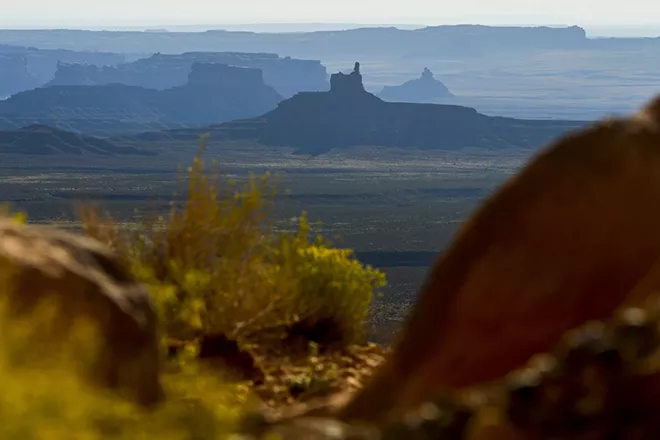
By JULIE TURKEWITZ and LISA FRIEDMAN
© 2017 New York Times News Service
BEARS EARS NATIONAL MONUMENT, Utah — Parts of this sprawling region of red-rock canyons and at least three other national monuments would lose their strict protection and could be reopened for new mining or drilling under proposals submitted to President Donald Trump by Interior Secretary Ryan Zinke on Thursday, according to congressional aides and others who have been briefed on the report.
Shrinking the monuments would be widely seen as a direct blow to Obama’s environmental legacy, and would probably prompt the first major legal test of a century-old conservation law.
Zinke was believed to be leaning toward such a step. But when he submitted his recommendations Thursday, he declined to announce specifically what he had proposed for Bears Ears or the other monuments under review.
People briefed on the plans said that along with Bears Ears, Zinke had proposed reducing the size of Grand Staircase-Escalante National Monument, also in southern Utah, and two others.
A White House spokesman referred to Zinke’s submission as a draft and said Trump wanted more time to study it. Some issues need to be explored in greater detail, the spokesman said in a statement.
Native American tribes in the Southwest, who lobbied for years to get the Bears Ears region designated a national monument, are expected to fight any move to reduce its size. Charles Wilkinson, a professor of public land law and an adviser to the tribes, said such a decision would be “an attack on a significant part of the foundation of American conservation law.”
Outdoor recreation and environmental groups are also expected to fight to preserve the monuments at their present sizes.
Democratic lawmakers who oversee federal land management and whose districts include some of the monuments under review expressed dismay at the process and at Zinke’s decision not to make his recommendations public Thursday.
“You would think that, being a member of Congress, that I would be able to get some details,” said Rep. Ruben Kihuen, a Democrat whose Nevada district includes Gold Butte National Monument.














